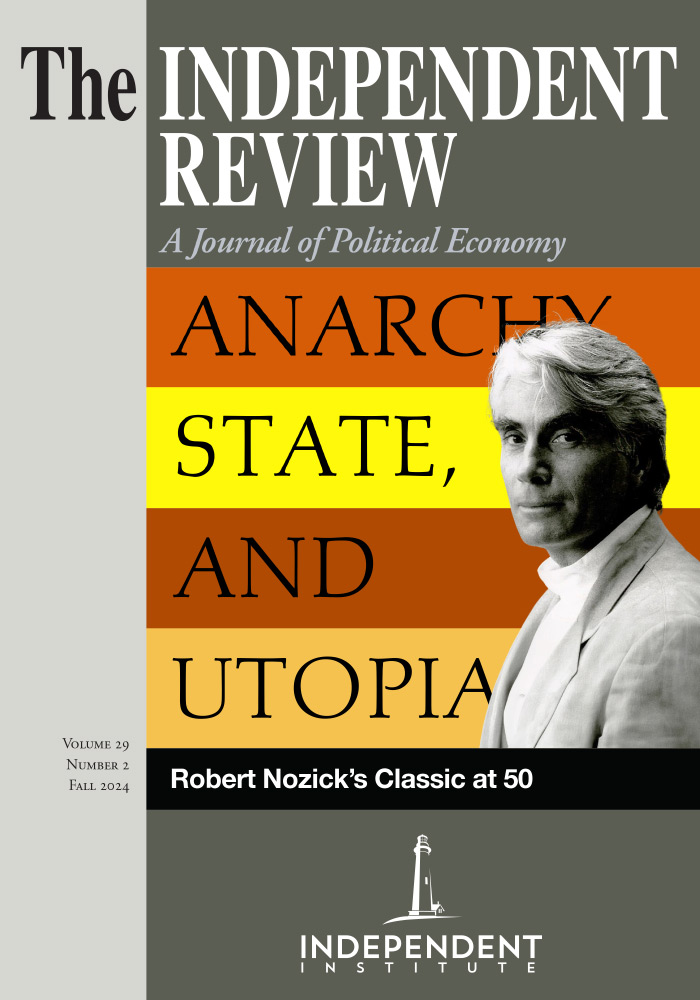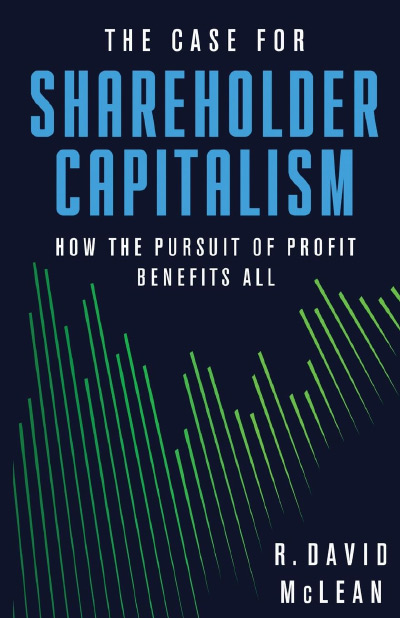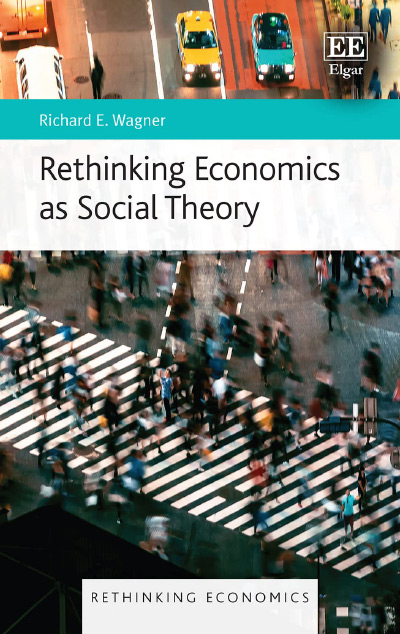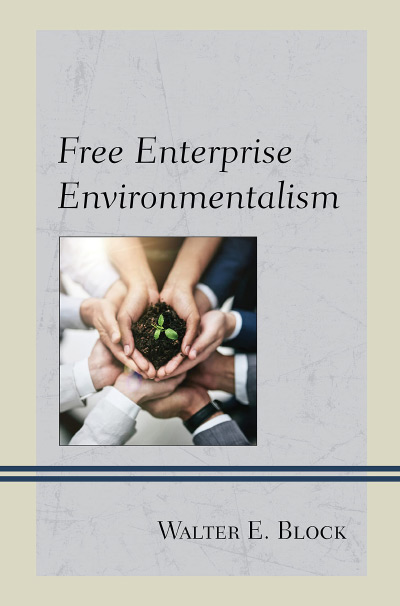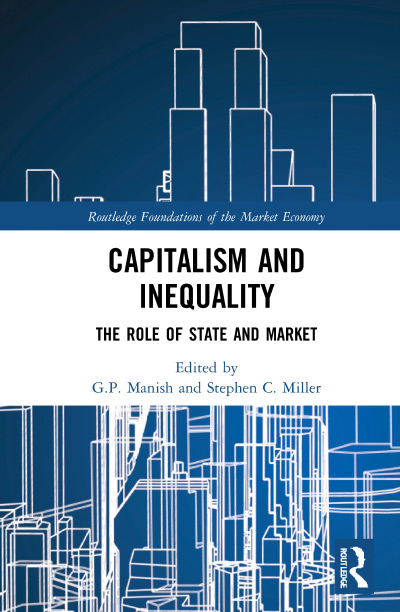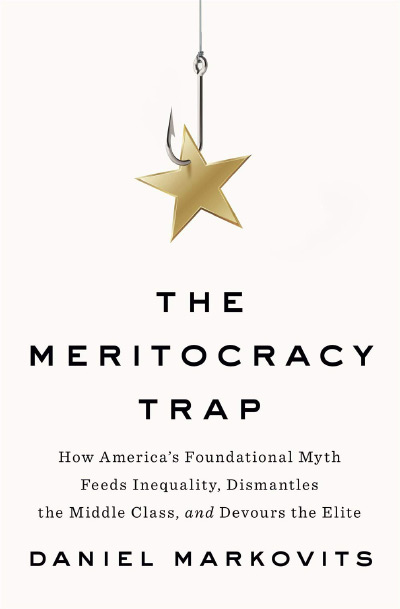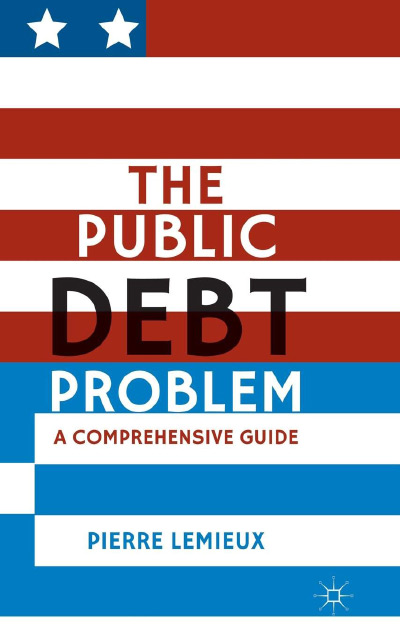How much of the muddled thinking about business and society that recurs in our public discourse could be rectified by teaching people the basic insights of Finance 101?
It seems obvious to many people that using share price to evaluate the performance of corporate executives must encourage short-term thinking at the expense of the long term, such as slashing investment in research and development to cut costs, thereby increasing quarterly earnings. But this is obvious only to people who do not understand the Finance 101 insight that share price reflects the present value of cash flows expected from profits in the future. Reducing expectations of a firm’s profitability in the future will generally cause a decrease in the value of the firm’s shares in the present. Hence, shareholder value, properly understood, has the long-term baked in. It is not biased toward the short-term in the way populist critics of corporations commonly assume.
It seems obvious to many people that it is bad for society when profitable firms return funds to their shareholders by issuing dividends or share buybacks rather than reinvesting profits into their business. Shouldn’t we want our corporations to devote their resources to creating jobs and producing valuable products rather than using those resources to further enrich the shareholder class? But this is obvious only to people who do not understand the notion of net present value (NPV) from Finance 101: the present value of expected future cash flows generated by an asset. Positive NPV investments create wealth for society, whereas negative NPV investments destroy wealth for society. Hence, we should want firms to follow the NPV rule: “accept all positive NPV projects and reject all negative NPV projects” (p. 15). Understanding this allows us to see that it is in fact good for society when firms with excess cash and no available positive NPV projects make payouts to their shareholders: the shareholders who receive payouts will generally reinvest elsewhere, helping fund positive NPV projects elsewhere in the economy. Dividends and share buybacks are mechanisms for facilitating efficient capital allocation, notwithstanding the public perception that they are mechanisms for enriching owners of capital at the expense of the rest of society.
In The Case for Shareholder Capitalism, R. David McLean, a professor of finance at Georgetown University, provides an accessible, jargon-lite presentation of basic ideas from finance and economics to help readers avoid these and other common fallacies about the relationship between business and society. The book is divided into three parts. The first part, Shareholder Capitalism in the Grand Scheme of Things, presents the institutional context of capitalism, and in doing so introduces readers to some relevant fundamental ideas from finance and economics. The second part, Common Fallacies, draws on the basic content from part one to expose several fallacies about business and society, including the two mentioned above, which McLean labels The Short-Term Fallacy and The Investment-Good/Payout-Bad Fallacy, respectively. The third part, A Closer Look at Corporate Social Responsibility, criticizes prominent recent proposals for stakeholder capitalism, for measuring firm performance with ESG (environmental, social, and governance) metrics, and for making sustainability a core priority of business.
The main purpose of the book is to defend shareholder capitalism as a superior account of the proper relationship between business and society compared to prominent alternatives such as the stakeholder capitalism ideal famously propounded by World Economic Forum founder and chairman Klaus Schwab. The central tenet of shareholder capitalism is that corporate executives must pursue maximum wealth for their firm’s shareholders. In pursuing wealth for shareholders, managers and employees must obey the law. They must also adhere to some basic ethical norms of market-based exchange: that transactions must be voluntary (ruling out coercive and fraudulent tactics), and that profit must be pursued through positive-sum means, i.e., in ways that make the economic pie bigger rather than just transferring pieces of the pie from one party to another.
Many readers will be familiar with the sort of position McLean defends from Milton Friedman’s seminal essay, “The Social Responsibility of Business Is to Increase Its Profits” (New York Times Magazine, September 13, 1970, pp. 13, 32–33, 122–24). One significant contribution of McLean’s book to business and society scholarship is that it provides an extended and updated defense of a Friedman-style position—a position that is frequently attacked and infrequently defended, and thus is somewhat underdeveloped in the literature in spite of the considerable attention it has received. Several chapters from the first two parts of the book are well-suited for inclusion on the syllabi of business and society-type courses. They are short and relatively easy to digest. I also want to highlight the book’s excellent final chapter prior to its conclusion, which advances a provocative argument that it is wrong-headed to conceive of sustainability as a goal for business firms in a system with competitive markets that relies on creative destruction to generate economic growth. “Shareholder capitalism encourages firms with valuable growth opportunities to invest and grow and, by doing so, it causes other firms to die. Eventually, every firm dies. Shareholder capitalism is fine with this. In a healthy economy, firms are always being born, and firms are always dying” (pp. 189-190).
McLean’s ideal of shareholder capitalism insists on a complete separation of business from politics. Managers of publicly traded corporations should be trying to maximize profit for their firm’s shareholder-owners within the constraints of what the law permits. “Corporate spending is either done (a) with the intention of creating value for the shareholders or (b) as a type of expropriation of the corporation’s—that is, the shareholders’—assets. There is no third category” (p. 139). McLean thus endorses a strict division of labor between the economic production of business firms versus the social and environmental issues that are the responsibility of politicians and regulators, not of business.
The strictness of the division of labor McLean endorses distinguishes his position from other advocates of shareholder governance, including probably Friedman. Although he is often interpreted as arguing for shareholder wealth maximization, what Friedman really seems to hold is that business firms should be run according to what owner-shareholders desire. This desire is usually, but not always, to increase shareholder wealth. Shareholders may desire that other goals be pursued in addition to profit, or that profit only be pursued under certain constraints—in such cases, management should pursue the specified goals and respect the specified constraints, as opposed to maximizing profit within the bounds of the law.
McLean, by contrast, seems to reject that shareholders of publicly-traded firms should have the power to authorize constraints on, or goals in addition to, the pursuit of profit. For instance, he argues not only that it is wrong for managers to use firm resources to pursue social projects, but also that it is wrong for shareholders to attempt to get the firm in which they hold shares to take actions that deviate from maximizing shareholder wealth. McLean’s argument for this view appeals to the idea that people who disagree about controversial social and political issues should nevertheless be able pursue their mutual interest by investing in a business together without one group of shareholders trying to hijack the productive enterprise’s resources for their personal favored causes. If investment, like so many other aspects of our society, were to polarize on political lines, fewer people would want to invest in publicly traded companies. Additionally, McLean believes that it is objectionably antidemocratic for shareholders, rather than politicians who are elected by the public, to decide “what is good or bad for society” (p. 157).
McLean thus ends up defending an especially radical version of the shareholder wealth maximization norm. Though I find his position interesting, I do not find it plausible. To close this review, I will briefly explain the main two reasons why.
First, the notion that business firms should mainly pursue profit rather than social or political projects strikes me as right—the principal way in which business benefits society is by producing valuable goods and services, not by getting swept into politics, advocacy, and philanthropy. But shouldn’t shareholders, as owners of the firm, have the freedom to modify the firm’s goals or set limits on how the firm will pursue them? Admittedly, efforts in this vein will often fail for reasons McLean explains—shareholders will disagree with each other about controversial issues, and it is not obvious how a firm should deal with such cases of shareholder disagreement. Still, it strikes me as unduly restrictive of the freedom shareholders enjoy as owners of publicly traded firms to hold that it is always wrong for them to exercise their ownership rights to authorize goals other than, as well as constraints on, the pursuit wealth for shareholders.
Second, I suspect that the sharp division of labor McLean wants to draw between the realm of business on the one hand, and the realm of politics and social issues on the other, relies on some unduly idealistic assumptions about the functioning of government and regulators. These assumptions are largely, but not entirely, implicit: on p. 149, McLean writes that if a policy “is clearly in society’s best interest, then it should not be controversial. It should be easy to convince most people that the policy” is a good idea and should be implemented. A chapter later, we encounter the claim that if “an externality is not regulated, it is probably because most of society feels that the regulation is not warranted” (p. 160). Thus, it is wrong for firms to attempt to address unregulated (negative) externality problems through voluntary action, because such action contradicts the democratic will of the people as expressed through the policy making process.
Part of the attractive simplicity of McLean’s position is that he outsources constraints on the profit motive to the law, rather than taking on the burden of articulating what those constraints should be with his own theory. If our purpose is to consider the proper role of business in an idealized world in which political and regulatory institutions function extremely well—with conscientious, well-informed voters electing capable politicians who are willing to prioritize what is just over what is politically expedient, and who empower and hold accountable competent agents of the state to implement and enforce democratically-enacted policies—then these assumptions may well be warranted.
But McLean’s book is not an academic exercise in ideal theorizing. It defends views about the ethical responsibilities of shareholders and managers in the real world. Even the political institutions of relatively well-functioning liberal democracies are highly imperfect. As we know from work in the public choice tradition and related literatures, voters tend to be rationally apathetic, politicians and regulators are subject to the same foibles that afflict all human beings, and as a result regulation often gets distorted by industry capture and by unaccountable bureaucrats. We must bear in mind that these problems afflict the best-functioning political institutions the world has to offer. Political institutions in repressive, dictatorial regimes such as China and Saudi Arabia stray even further from the ideal that McLean assumes, leaving one to wonder what constraints on the pursuit of profit he thinks should apply to businesses operating internationally, and especially in undemocratic, repressive political regimes. Can we plausibly outsource the baseline moral constraints on the profit motive to the highly imperfect politicians and regulators who make our laws? Can we maintain a strict separation between business activities versus political and social initiatives when our political institutions exhibit such significant flaws—flaws that voluntary action, including by business firms, may in some cases help remedy? I suspect not.
This does not mean that we should do away with the profit motive or adopt the sorts of stakeholder management reforms to corporate law favored by Klaus Schwab or Elizabeth Warren. But it makes me doubt that business leaders can be freed from taking social and political issues into account to the degree McLean envisions.

